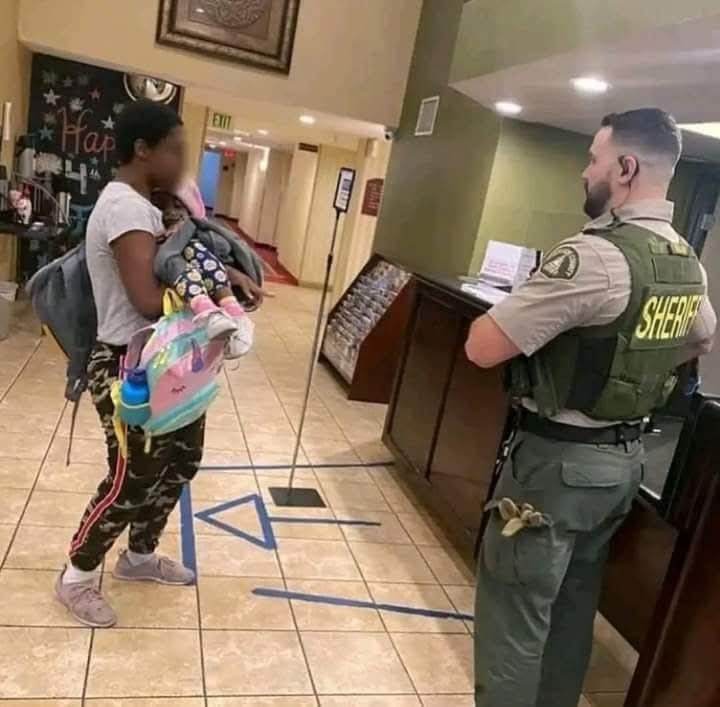Last night, Deputy Ballard was on routine patrol when he came across a sight that caught him off guard: a family stranded by the roadside. They had missed their bus, and with no shelter, no plans, and no immediate alternatives, they were preparing to spend the night on the streets, clinging to hope that morning would bring a new opportunity.
The family looked weary—tired faces, weary limbs, anxious glances exchanged among themselves. The father tried to reassure the children, but their uncertainty was palpable. They had nowhere safe to go, no warmth to shelter them, and no assurance that morning would bring rescue.
Deputy Ballard could have driven on—as many might have—but instead he chose differently. He pulled over, introduced himself quietly but firmly as an officer and human being first, then asked questions: How long had they been stranded? What options had they explored? Did they have family or friends nearby who could help? The answers were quiet, hesitating: they had no immediate help, no backup, and no safe place to stay.
Something inside the deputy shifted. He asked for their names, their story, their hopes. Then he reached into his own pocket—and not for a small token. He paid to rent a motel room for the night. Enough space so the family could stay together, off the streets, in safety, with dignity. They would not have to freeze, shiver, or wonder if someone might harm them in the dark.

When the children heard this, relief washed through their faces. The father’s eyes glistened. The mother’s shoulders dropped—the weight of fear lessened. A simple act, but everything to them in that moment.
Deputy Ballard stayed long enough to help them settle in, to bring them blankets, water, reassurance. He made sure they had some snacks and told them they could rest, sleep, and try again in the morning. He told them they weren’t alone.
As he walked out, he quietly said: “You deserve better than the street tonight.” And with that, he left them to safety.
This was not a show. He didn’t broadcast it. He acted quietly, compassionately—because when someone is down, a hand lifted toward them carries weight beyond its size.
We often hear about officers enforcing laws, responding to crises, patrolling the streets. But rarely do we see an officer respond with empathy first, with humanity first. Deputy Ballard reminds us that beyond the badge, behind the uniform, is a person capable of choosing to help.
Last night’s scene could have been a tragedy: a family facing fear, danger, loneliness. But because one person made a different choice, the ending was gentler. The family slept indoors. The children rested. The parents felt, even if only for a moment, that compassion still walks among us.
We don’t know yet what tomorrow holds—whether they will make their ride, whether opportunities will open. But tonight, they were given a night free of cold, a night free of fear. And sometimes, that matters more than any grand gesture.
Let this story linger. Let it remind us that small kindnesses, when sincere, ripple outward. And maybe, just maybe, encourage each of us to act similarly when we cross paths with someone in need.